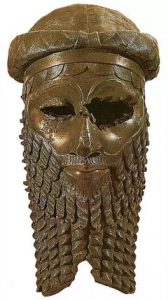This is mark Joseph “young” blog entry #455, on the subject of The Song “King of Glory”.
I’m going to state up front that I would put this at the bottom of just about every list.
It is one of the weakest songs I ever wrote, musically and lyrically. I actually wrote it in eighth or ninth grade, and it was intended originally to be part of a rock opera (they were a big deal then) about a depressed teenager, and was supposed to tell of an encounter with the Jesus People (also a big thing then).
It’s also a pretty bad recording. It’s another vocals-over-midi-instruments one I did as part of the nostalgic collection of Last Psalm songs recorded for Jes Oldham. I was struggling to squeak out Ruthanne Mekita’s soprano, and I don’t know whether that was the problem but the intonation of the vocals I just couldn’t get right. I’m never that bad on my intonation, and it’s embarrassing.
But I recorded it, as I suggested, because Jes wanted a collection of Last Psalm songs, and this is one on which she sang once upon a time. I won’t be at all offended if you skip it, but here it is if you want to hear just how badly I can do this sometimes. I assure you that The Last Psalm sounded considerably better on this–I once had tapes, but they’re long gone, so this is the best I can offer.
King of Glory.
So here are the lyrics.
Won’t you try my Jesus?
He is everything.
He’s the King of Glory,
The Eternal King.When I need someone beside me,
He is always there.
When nobody else will hide me
He makes me take the dare.Won’t you try my Jesus?
He is everything.
He’s the King of Glory,
The Eternal King.When you need an answer, man,
He’s the place to go.
He drew up the master plan,
You know he’s gotta know.Won’t you try my Jesus?
He is everything.
He’s the King of Glory,
The Eternal King.Won’t you try my Jesus?
He is everything.
He’s the King of Glory,
The Eternal King.Won’t you try my Jesus?
He is everything.
He’s the King of Glory,
The Eternal King.Won’t you try my Jesus?
He is everything.
He’s the King of Glory,
The Eternal King.
*****
Previous web log song posts:
#301: The Song “Holocaust” | #307: The Song “Time Bomb” | #311: The Song “Passing Through the Portal” | #314: The Song “Walkin’ In the Woods” | #317: The Song “That’s When I’ll Believe” | #320: The Song “Free” | #322: The Song “Voices” | #326: The Song “Mountain, Mountain” | #328: The Song “Still Small Voice” | #334: The Song “Convinced” | #337: The Song “Selfish Love” | #340: The Song “A Man Like Paul” | #341: The Song “Joined Together” | #346: The Song “If We Don’t Tell Them” | #349: The Song “I Can’t Resist You’re Love” | #353: The Song “I Use to Think” | #356: The Song “God Said It Is Good” | #362: The Song “My Life to You” | #366: The Song “Sometimes” | #372: The Song “Heavenly Kingdom” | #378: The Song “A Song of Joy” | #382: The Song “Not Going to Notice” | #387: The Song “Our God Is Good” | #393: The Song “Why” | #399: The Song “Look Around You” | #404: The Song “Love’s the Only Command” | #408: The Song “Given You My Name” | #412: The Song “When I Think” | #414: The Song “You Should Have Thanked Me” | #428: The Song “To the Victor” | #433: The Song “From Job” | #436: The Song “Trust Him Again” | #438: The Song “Even You” | #441: The Song “Fork in the Road” | #442: The Song “Call to Worship” | #445: The Song “How Many Times” | #447: The Song “When I Was Lonely” | #450: The Song “Rainy Days” | #453: The Song “Never Alone”
Next song: Greater Love









